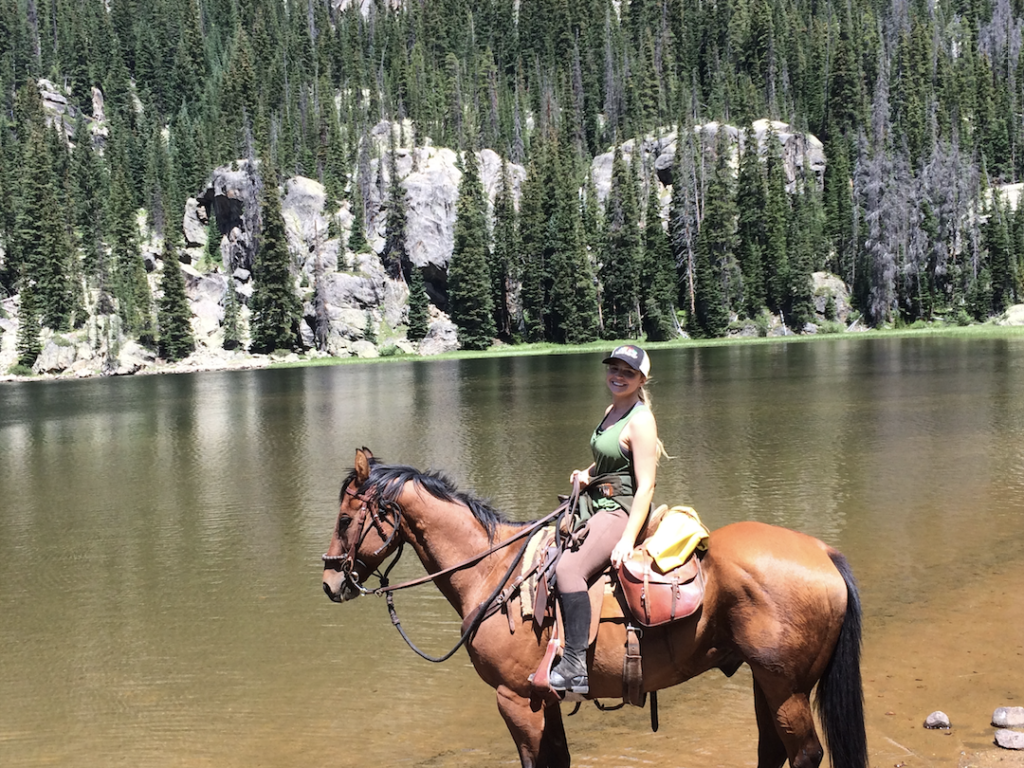(DENVER) — Samantha Miller is the campaign manager for Cats Are Not Trophies, the non-profit behind Colorado’s Proposition 127, an initiative to ban the intentional killings of mountain lion, bobcat, and lynx.
The genesis for the ballot measure: More than 500 mountain lions are killed in Colorado every year. There are no restrictions on the hunting of bobcats. And according to the Colorado Parks and Wildlife, the most common causes of death for lynxes are trapping, poisoning, and loss of habitat.
Miller has a background in public policy with experience working on wildlife issues in Oregon, Washington, Colorado, and other Western states. Miller sat down with The Click to talk about how Proposition 127 can help maintain ecological balance and prevent cruelty. Colorado voters will vote on this issue in November.
This interview was edited for length and clarity.
The Click: Lynx hunting is currently banned in Colorado. Why do lynx need to be added to the Colorado hunting ban?
Miller: There’s a difference between state and federal protections and state law and federal law. So with the Endangered Species Act, they do have those protections now, but those protections can be removed at any time by U.S. Fish and Wildlife Services… Once they’re downlisted, much like gray wolves, they’re moved to game or furbearer lists. So then they can be hunted or trapped. If you look at the wolves in the Northern Rockies and Montana and Wyoming, once those Endangered Species Act protections were removed, those wolves were immediately moved to game species status and were hunted.
Can you explain the ecological impact of banning big cat hunting and why protecting these species is crucial to maintaining the balance of the general Colorado ecosystem?
I think that if you are a deer or elk hunter, mountain lions should be a good friend of yours. They do an excellent job at keeping herds healthy.
One of the really exciting pieces of research I’ve found is that mountain lions will pre-select for animals with chronic wasting disease, which we know is a huge problem amongst Colorado deer and elk herds. They will actually kill that animal before it shows any signs or symptoms, eat the animal. They themselves don’t catch the disease, and then they don’t spread it onto the landscape like a deer or elk would.
That’s really cool and a great segue into my next question. How do you respond to hunters and hunting organization’s concerns that big cat hunting is a part of traditional wildlife management and a sport?
I would say that when we know better, we do better.
The majority of hunters don’t hunt this way. And this isn’t about the majority of hunters that we see as ethical hunters. This is about a tiny subset of hunters that still enjoy hunting mountain lions with packs of dogs and still enjoy trapping bobcats, and skinning them and selling their furs at annual fur auctions.
If the initiative passes, would it have an impact on local tourism, especially hunting outfitters and hunting guides in Colorado?
It’s a very minimal impact. The Colorado Secretary of State did a great job analyzing the fiscal impact of this type of prohibition, which was marked at less than $450,000. The bread and butter of outfitters hunting guides in the off season is elk and deer. That’s what folks come to Colorado for.
Why has Cats Are Not Trophies decided to go with the term “trophy hunting.” Is it because the niche group that you are referring to are specifically trophy hunters?
Absolutely. So we use that term because they used it for themselves until the ballot initiative was introduced and then they started scrubbing their sites of it… We have a lot of videos on our website, with them in their own words, pulled from social media: “What a trophy, Tom. Great trophy. Oh, you got that lion. Find a good mount.”
I was doxed by these guys a couple months ago, and there’s more than 200 comments beneath my photo saying I should be tagged and mounted.
Some people may feign: “Oh, we eat the cat or CPW has regulations to prepare all the meat for consumption.” What that really says is field dressing your game. That’s part of waste laws. You’re not seeing cats on the menu at Applebee’s. The primary purpose of these hunts is for a mount you put on your wall and it is for a pelt you might sell somewhere.
I’m really sorry that you had to go through that. If the ban on big cat hunting is implemented, how will your organization monitor enforcement?
Thankfully, we have more than 900 volunteers across the state in their communities now that will show up. We are very much a statewide effort and having that volunteer network then means we have ambassadors across the state to make sure that their communities are set up for success when this passes.
In my county, there was an alpaca rancher who had lost an alpaca to a lion. I was able to find him grant funding for an alpaca pen build and lion-proofed his structures. All of us are invested in that way.
The majority of Coloradans support this initiative. If you look at a recent CSU study that came out 88 percent of Coloradans opposed hound hunting and 77 percent opposed hunting mountain lions for trophies. So this is an issue where we can all show up for each other.






